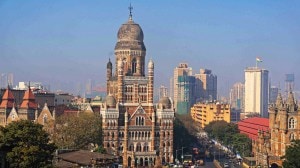The Great Eastern way
It appears the Great Eastern Hotel in Kolkata will finally be privatised. With the last of the eight employees agreeing to the terms of an e...

It appears the Great Eastern Hotel in Kolkata will finally be privatised. With the last of the eight employees agreeing to the terms of an early retirement scheme, all hurdles in the way of opening the hotel up to bidders have disappeared. This development ought to be welcomed. The government should now ensure that the remaining steps to bring this saga to a close are taken rapidly. The hotel was not simply a Kolkata landmark. It had become symbolic of the debate on reforms. The idea of privatising the hotel was first floated almost 12 years ago.
The Bengal CPM8217;s embrace of economic reform, including privatisation, is one of the momentous transformations underway in contemporary politics. It augurs well for the nation when a party that had the most ideological investment in opposing reform begins to acknowledge its necessity. The CPM is demonstrating that a party of governance has to orient itself towards future possibilities rather than be a prisoner of dead dogma. It is also beginning to acknowledge that under no conceivable definition of being pro-poor can the state justify running loss-making public sector enterprises. Those who argue for an expansive role for the state in areas it has no business entering into, are not looking out for the poor.
The Great Eastern saga has another valuable lesson. The delay in privatising enterprises that ought to be sold off come with huge opportunity costs. The debate should not be over whether to privatise. It should be over how best to do it so that the government gets the best deal and employees, a compensation package that is fair. The interests of employees are a valid concern for a privatisation programme but they can be imaginatively addressed and need not become an obstacle to the process. The Great Eastern Hotel now promises to become a symbol of future prosperity rather than a reminder of past failures. It is a tribute to Buddhadeb Bhattacharya8217;s perestroika.
- 01
- 02
- 03
- 04
- 05































